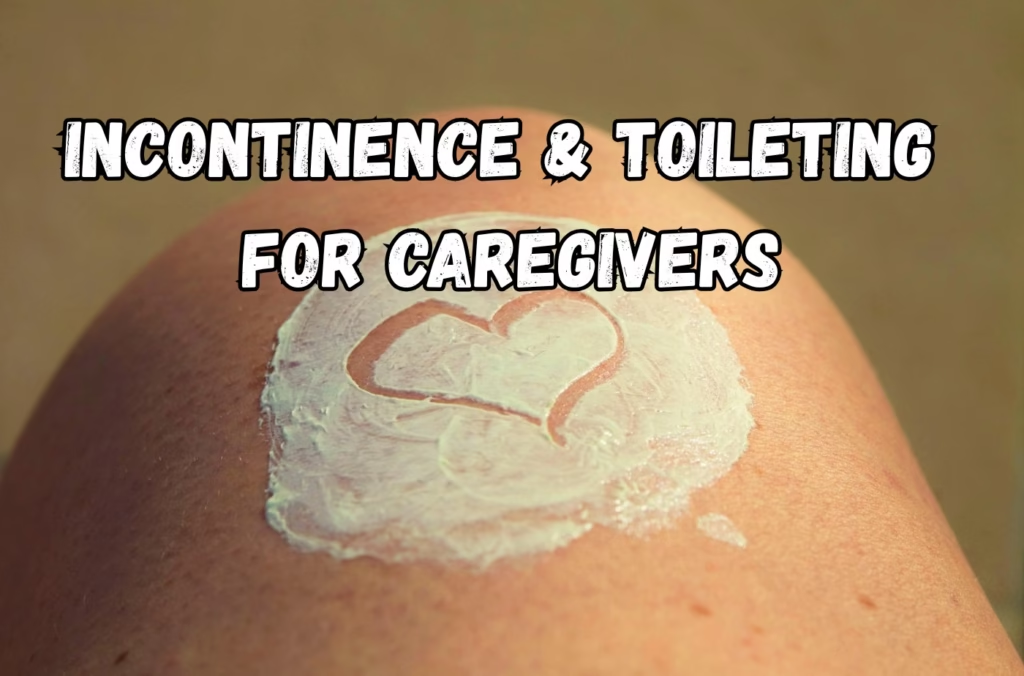In the digital age, senior scams are a burgeoning concern, as numerous criminals target the elderly. Understanding and implementing senior scam prevention strategies is crucial for safeguarding our loved ones from becoming victims of financial abuse. With fraudulent activity on the rise, what protective measures can seniors take to shield their assets and ensure their financial safety?
1. An Overview of Senior Scams and Financial Abuse
As we age, staying vigilant about our financial safety becomes more crucial. Elderly individuals can fall prey to various deceptive practices that aim to swindle them out of their hard-earned money. Understanding the common types of scams targeting seniors is the first step in protecting oneself or our loved ones from potential harm.
Common Types of Scams Targeting Seniors
- Telemarketing Scams: Seniors may receive phone calls offering fake products, services, or charitable causes.
- Internet Fraud: This can include email phishing, where scammers pose as legitimate organizations to extract personal information.
- Investment Schemes: Seniors with retirement savings are often targeted with too-good-to-be-true investment opportunities.
- Medicare Scams: Scammers pose as Medicare representatives to solicit personal information or offer bogus services for a fee.
- Lottery Scams: Elderly individuals receive notifications of a fake lottery or sweepstakes win, prompting them to pay a fee to claim their “prize.”
Why Seniors Are Vulnerable to Scams and Financial Exploitation
Elderly individuals may possess characteristics that increase their susceptibility to scams. Many seniors have accumulated savings over a lifetime of work, making them attractive targets for fraudsters. Additionally, they might be less familiar with technology, leaving them exposed to digital scams. Loneliness or social isolation can also play a role—seniors may be more willing to engage with scammers due to a desire for conversation or companionship.
Certain health conditions like dementia or cognitive decline can further impair judgment, making it difficult for seniors to recognize deceitful intentions. Trusting by nature, seniors might find it challenging to believe someone would intentionally mislead them, and thus might not question the legitimacy of a suspicious offer.
The Impact of Scams on Elderly Victims
The repercussions of falling victim to a scam are not only financial but can also impact the emotional and physical well-being of seniors. Financial losses can lead to a significant decrease in their quality of life, stripping them of the resources required for their daily needs or healthcare. The stress and anxiety caused by being scammed can exacerbate existing health conditions or trigger new ones, impacting both physical and mental health.
The shame and embarrassment associated with being deceived can lead to reluctance in sharing their experience, thus potentially falling outside the supportive network of family and friends. Therefore, awareness and senior scam prevention strategies are imperative for safeguarding the elder population against such malicious activities.
To maintain financial safety, it’s crucial to stay informed about the latest scams, regularly review financial statements for unauthorized transactions, and remain skeptical of unsolicited offers. Encouraging open conversations with family members about finances and potential risks can help build a strong defense against fraud. It’s also beneficial to use reputable services that offer tools and guidance designed for elder protection.
For effective senior scam prevention strategies, remember to never disclose personal information over the phone or the internet unless you are sure of the recipient’s authenticity. Seniors and their caregivers should also consider registering with the National Do Not Call Registry to reduce telemarketing calls. Being proactive and diligent in these strategies is key to combating the prevalent issue of financial abuse in the senior community.
2. Senior Scam Prevention Strategies
As we grow older, it becomes increasingly important to stay vigilant about our financial and personal security. Understanding senior scam prevention strategies is crucial for protecting the elderly from deceptive practices that target their hard-earned savings. Let’s delve into practical measures that seniors and their loved ones can employ to safeguard against potential scams.
Recognizing the Red Flags of Scams
One of the first steps in scam prevention is identifying warning signs. High-pressure tactics, such as insisting on immediate decisions or payments, are a clear indicator of a potential scam. Be wary of requests for personal or financial information over the phone or online, especially if the source is unsolicited. Additionally, any offer that seems too good to be true, such as an unexpected windfall or guaranteed returns on an investment, should be approached with skepticism.
- High-pressure sales tactics
- Unsolicited requests for personal information
- Offers that seem unrealistic
Keep in mind, genuine institutions will not rush you to make decisions, and they will respect your privacy.
Setting Up Financial Safeguards
To minimize the risk of financial abuse, it’s advisable to establish senior scam prevention strategies that incorporate financial safeguards. This includes arranging for regular reviews of bank and credit card statements by a trusted family member or financial advisor. Consider setting up alerts for unusual activity or large transactions. It’s also beneficial to use direct deposit for checks to ensure they are securely deposited into your bank account without the risk of being stolen or misplaced.
- Review of statements by trusted individuals
- Alerts for unusual financial activity
- Direct deposit for checks
Secure Personal Information Management
Effective personal information management is critical for preventing identity theft and fraud. Shred documents that contain sensitive information before disposing of them. Safeguard your Social Security number, and be judicious about who you share it with. Implement strong, unique passwords for all online accounts, and be cautious about sharing them. It’s also wise to use updated antivirus software and to verify that websites where you provide personal information are secure.
- Shred sensitive documents
- Conceal Social Security numbers
- Strong password practices and antivirus software use
- Verify the security of websites
Taking these proactive steps can prevent scams before they occur, ensuring seniors can maintain their independence and financial well-being. It’s a shared responsibility, and by working together, families and caregivers can effectively implement senior scam prevention strategies to protect the older adults in their lives.
3. Education as the First Line of Defense
When it comes to senior scam prevention strategies, education stands as a formidable barrier against financial exploitation. In an era where deceptive tactics are ever-evolving, staying ahead with knowledge is crucial for older adults. Understanding and recognizing the hallmarks of fraudulent schemes is the foundation of safeguarding one’s finances and well-being.
Staying Informed About Current Scams
The first step in preventing senior scams is to remain vigilant about current scams. Fraudsters constantly develop new ways to target vulnerable populations, particularly seniors. These scams can range from phone calls alleging unpaid taxes to emails that appear to be from legitimate sources but are actually phishing attempts. By regularly reading updates from trusted organizations, such as the Federal Trade Commission (FTC) or the Consumer Financial Protection Bureau (CFPB), seniors can stay abreast of the tactics scammers are currently using.
This knowledge empowers seniors to detect potential red flags before a scammer can cause harm. Encourage older adults to share this information in their peer groups as well. This communal approach not only fosters a supportive network but also amplifies the reach of vital scam prevention education.
Training Programs and Resources for Seniors
Additionally, there is a wealth of resources and training programs designed to arm seniors with practical skills to avoid scams. Organizations such as AARP and various non-profits offer workshops, webinars, and detailed guides that cater to senior scam prevention. These programs specifically tailor their content to address the unique concerns and situations that seniors may face, making them an invaluable resource.
Family members and caregivers can play a supportive role by encouraging participation in these programs and even attending sessions alongside their loved ones. Collaborating on this educational journey can significantly reinforce the understanding and application of scam prevention strategies. By fostering an environment where education is consistently prioritized, seniors can confidently navigate the financial landscape, equipped with the knowledge needed to protect themselves from nefarious actors looking to take advantage.
Education truly is the first line of defense in the fight against scams and financial abuse for older adults. By staying informed and taking advantage of available resources, seniors can construct a formidable barrier against those who seek to deceive. Embrace senior scam prevention strategies as not just a concept but a proactive and ongoing practice to ensure safety and security in the golden years.
4. Building a Support Network
The Role of Family and Friends in Prevention
As seniors navigate the complexities of modern life, the support of family and friends becomes crucial in safeguarding their financial well-being. These close-knit individuals play a vital role in senior scam prevention strategies. They are often the first line of defense against potential scammers, as they may be more aware of the latest scams and technologies that are commonly used to exploit seniors.
Family members and friends can help by staying informed about the types of scams that are currently prevalent and discussing them with their senior loved ones. By maintaining open lines of communication, seniors can feel more comfortable sharing their experiences and concerns, enabling timely intervention when necessary. It’s also essential for those close to the senior to watch for warning signs, such as sudden changes in financial situations or unusual withdrawals from accounts.
Additionally, loved ones can assist by setting up protective measures, such as fraud alerts on bank and credit accounts, and ensuring that proper legal documents, like powers of attorney, are in place. This proactive approach can help to address any suspicious activity and minimize potential damage immediately.
Utilizing Community Programs and Services
Aside from the personal network of family and friends, community programs and services are an excellent resource for bolstering senior scam prevention strategies. These organizations often offer workshops, seminars, and resources specifically designed to educate seniors about financial abuse and how to avoid it. Many communities have senior centers, non-profits, or local branches of national organizations dedicated to elder welfare that provide these services.
Seniors should be encouraged to take advantage of these programs, as they can learn not only about scam prevention but also about resources available to them should they become victims of a scam. Community resources also frequently offer social opportunities, reducing isolation—a factor that can make seniors more vulnerable to scammers. Partnering with local law enforcement agencies, these programs also sometimes provide up-to-date alerts about scams in the area, further empowering seniors to protect themselves.
It’s worthwhile for family members to help identify and facilitate access to these community resources, ensuring that their senior loved ones can take advantage of them. By fostering a collaborative approach that combines personal support with public resources, a strong network is formed, significantly enhancing the safety and security of seniors against financial scams.
In conclusion, establishing a robust support network is a key aspect of senior scam prevention strategies. Through the combined efforts of family, friends, and community services, seniors can receive the comprehensive support and education necessary to prevent scams and safeguard their finances.
5. Legal Measures and Reporting
As we focus on senior scam prevention strategies, it is essential to understand the legal measures in place designed to protect against scammers and fraudsters. Navigating these legal protections begins with being aware of your rights and understanding how to utilize them effectively.
Navigating Legal Protections Against Scammers
First and foremost, familiarize yourself with laws made to shield seniors from financial abuse. The Elder Justice Act, for example, was enacted as part of the Affordable Care Act to combat elder abuse, neglect, and economic exploitation. It provides federal resources to prevent, detect, treat, understand, intervene in, and, where appropriate, prosecute elder abuse.
Apart from federal laws, individual states also have their own set of regulations and protective services. It’s essential to know the specifics of your state’s protective legislation. Many states have Adult Protective Services (APS) agencies that are designed to address abuse, neglect, and exploitation of the elderly, including scams.
How and Where to Report Suspected Scams
When it comes to reporting suspected scams, there are several routes to consider. If you have fallen victim to a scam or suspect fraudulent activity, it is crucial to act swiftly.
- The Federal Trade Commission (FTC) is a key resource, allowing you to file a complaint through their website or by calling their helpline. By reporting to the FTC, you’re helping to build a case against scammers and increase awareness of their tactics.
- The Consumer Financial Protection Bureau (CFPB) is another agency where you can submit complaints, especially regarding financial products or services that were used to scam you.
- Reporting to local law enforcement is also a key step. They can take direct action and might be able to provide immediate assistance.
Beyond these federal and local resources, you can also report scams to the AARP’s Fraud Watch Network, which is dedicated to protecting seniors by providing scam alerts and information on the latest fraud schemes.
In addition to these reactive measures, proactive strategies for senior scam prevention should also be implemented. This includes regularly checking credit reports for unauthorized activity, using direct deposit for benefit checks to avoid mail fraud, and consulting with a trusted family member or financial advisor before making large transactions or investments.
Through education, awareness, and the proper use of legal measures and reporting channels, seniors and their caregivers can build a robust defense against the growing issue of scams and financial abuse. Remember, the key to preventing scams is vigilance; always stay informed and don’t hesitate to report suspicious activities. With the proper knowledge and tools at your disposal, you can help safeguard your financial well-being or that of a loved one.
6. Recovery and Resilience
Discovering you’ve been scammed can be a distressing experience, especially for older adults who may be managing chronic diseases and trying to maintain financial security. However, knowing the proper steps to take after falling victim to a scam can help mitigate the damage and pave the way toward rebuilding resilience. Implementing senior scam prevention strategies can ensure you’re safeguarded against future threats.
Steps to Take If You’ve Been Scammed
- Report the Scam: As soon as you recognize you’ve been scammed, report the incident to local law enforcement, your bank, and credit agencies. Reporting is not just crucial for your own recovery but also helps prevent future scams.
- Contact Financial Institutions: Immediately notify your banks and credit card companies. They can take measures to secure your accounts and watch for suspicious activity.
- Change Logins and Passwords: Update the login information for any online accounts that may have been compromised to prevent further access by scammers.
- Seek Support: Engage family members or trusted friends who can support you through the recovery process, including helping with any necessary paperwork or follow-up.
Understanding and undertaking the steps mentioned above contribute to effective senior scam prevention strategies, which are essential in protecting older adults from financial abuse.
Rebuilding Financial Security After a Scam
- Assess Financial Impact: Start by assessing how the scam has impacted your finances. This may involve meeting with a financial advisor or counselor to determine the extent of the damage and plan your recovery.
- Create a Financial Plan: Work with financial professionals to devise a plan that prioritizes your expenses and outlines a pathway to regain economic stability.
- Monitor Credit Reports: Regularly review your credit reports for any unauthorized activity or new accounts opened in your name.
- Stay Vigilant: Educate yourself on common scams targeting seniors. Prevention is key, so be cautious with your personal information and remember to question offers that seem too good to be true.
By being proactive and persistent in these efforts, you not only enhance your financial resilience but also contribute to preventing senior scams. Navigating the recovery from fraud takes time and patience, but with the right strategies and support, seniors can regain their financial footing and maintain their well-being.
If you need additional help or resources, don’t hesitate to reach out to organizations that specialize in assisting older adults, such as the AARP or the National Council on Aging. These institutions can offer valuable guidance and are often familiar with the intricacies of senior scam prevention strategies, helping to ease the recovery process.
Surprising Fact: Research shows that older adults who are informed about frauds and scams are 80% less likely to be victimized than those who are unaware. Sharing knowledge about senior scam prevention strategies is not just helpful; it could be critically life-altering for seniors at risk of financial abuse.
Featured image by Terri Sharp from Pixabay


